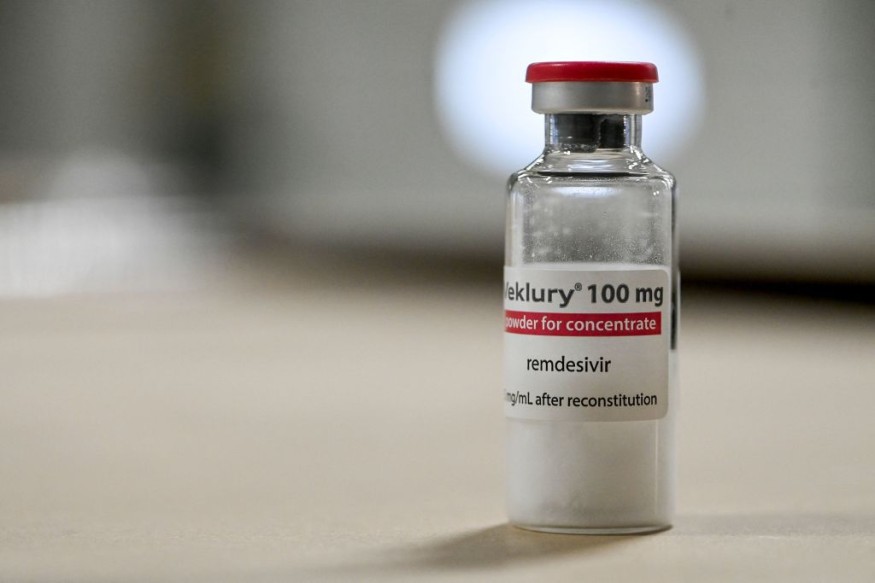Study Finds Remdesivir Effective in Stopping Virus Spread; Effective Against COVID-19’s Vital Enzyme

A study confirmed that a drug used in treating patients with hepatitis C and other cold-like viruses also interfered with one of the vital COVID-19 enzymes, preventing it from increasing its numbers.
Potential COVID-19 Treatment
Since the start of the global health crisis, scientists and researchers have called for safe and efficient antiviral treatments that could prevent and protect people against COVID-19.
Researchers found that Remdesivir, a medication that worked against the Middle East Respiratory Syndrome Coronavirus (MERS-Cov), had interfered against the key enzyme of COVID-19.
The antiviral medication Remdesivir targets a range of viruses. It was developed by the biopharmaceutical company Gilead Sciences.
According to Express, the chair of medical microbiology and immunology at U of A, Matthias Götte, stated that they were optimistic that they would end up seeing the same results against the SARS-CoV-2 virus. Götte added that they obtained almost the same results when they have conducted the same study with MERS. Similar results were their basis that Remdesivir should be considered as a very potent inhibitor for coronavirus polymerases.
The study published in the Journal of Biological Chemistry showed that the studied drug could hinder COVID-19's specific enzyme that replicates RNA, which is responsible for its increasing number. Researchers claimed that the drug has been studied extensively and shown to be effective at preventing COVID-19.
Over a decade ago, researchers developed Remdesivir to help treat patients with hepatitis C and another cold-like virus called respiratory syncytial virus (RSV).
Studies suggested that Remdesivir is effective against viruses in the coronavirus family. The umbrella of viruses included familiar names such as Middle East Respiratory Syndrome (MERS) and Severe Acute Respiratory Syndrome (SARS), viruses that also brought fear and problems in the past.
Coronaviruses have genomes made up of ribonucleic acid or known as RNA. With the drug shown to interfere with one of the key COVID-19 enzymes need to replicate RNA.
Moreover, the chair of medical microbiology and immunology at U of A, Götte, stated that if polymerase would be targeted, the virus cannot spread, so it would be a very logical target for treatment. Götte also stated that the coronavirus polymerases were sloppy, and they get fooled, which means that once the inhibitor gets incorporated into the human body several times, the virus can no longer replicate.
The polymerase was any of the several enzymes which catalyze the formation of DNA or RNA from precursor substances in the presence of pre-existing DNA or RNA acting as a template.
Numerous studies showed that Remdesivir is a very potent inhibitor for coronavirus polymerases, demonstrating its potential in fighting COVID-19.
Even the World Health Organization fast-tracked Remdesivir as one of the several drugs expedited into trials by comparing potential treatments in hospitalized COVID-19 patients in several countries in the world.
Furthermore, Götte was disappointed that these antivirals were not available and discovered at the time of the severe acute respiratory syndrome (SARS) outbreak of 2003. Götte added that the medication might have been effective against the previous outbreaks and now COVID-19 too. Other antivirals were never translated into widely available treatments because of the huge cost involved in developing new drugs.
Despite the financial challenge, Götte said that this time around, they needed to cross the finish line.
He added that ten billion dollars seemed a huge amount, but in the context of this pandemic and the costs associated with this pandemic, it's nothing.
RELATED ARTICLE : US President Joe Biden to Mandate COVID-19 Safety Measures To Protect Unvaccinated People; Will Americans Wear Masks Again?
This article is owned by Latin Post
Written by Jess Smith
WATCH: Treatment with Remdesivir for COVID-19 - ICU Advantage
Subscribe to Latin Post!
Sign up for our free newsletter for the Latest coverage!
© 2026 Latin Post. All rights reserved. Do not reproduce without permission.














